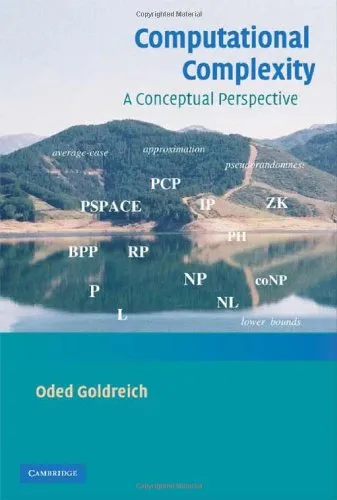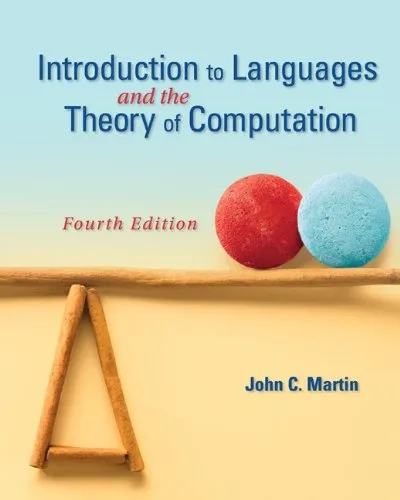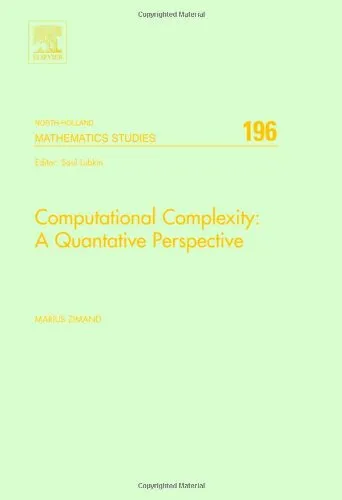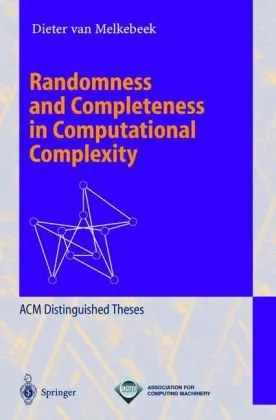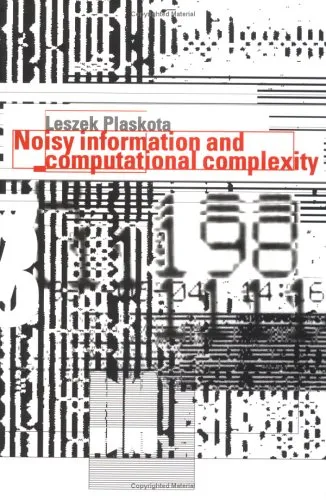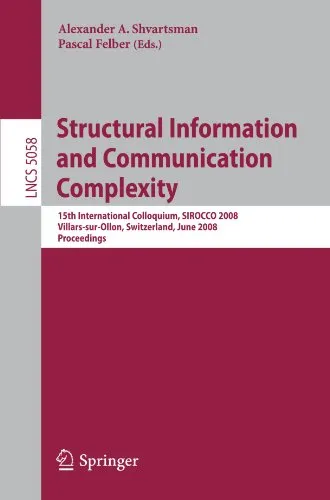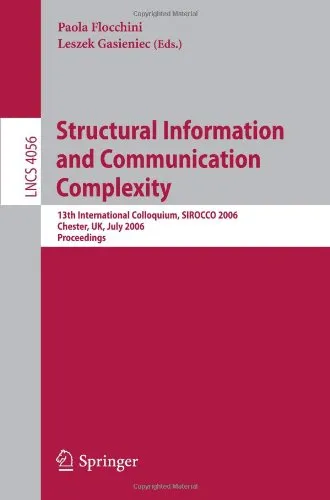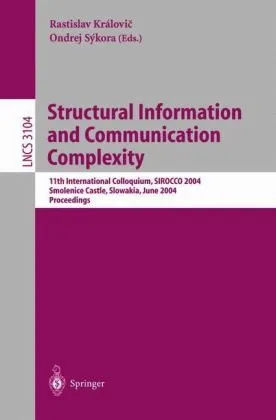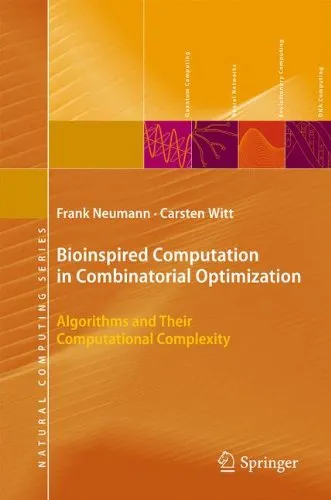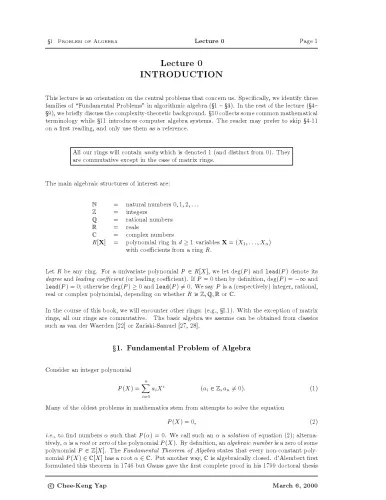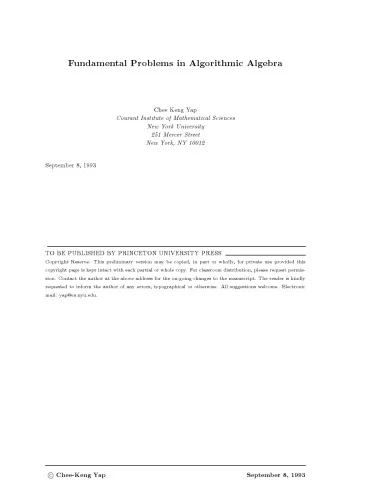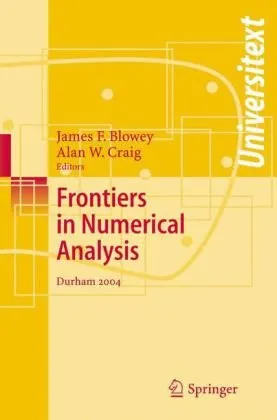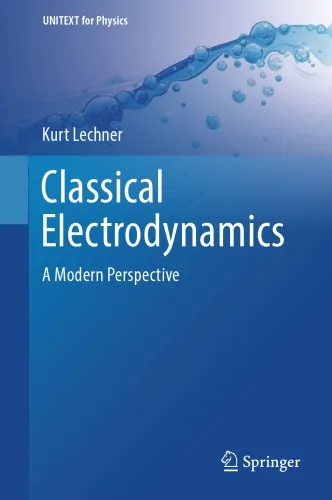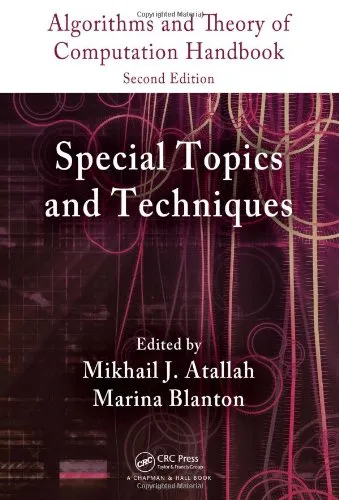Computational complexity: A conceptual perspective
4.5
Reviews from our users

You Can Ask your questions from this book's AI after Login
Each download or ask from book AI costs 2 points. To earn more free points, please visit the Points Guide Page and complete some valuable actions.Related Refrences:
Introduction to 'Computational Complexity: A Conceptual Perspective'
'Computational Complexity: A Conceptual Perspective' by Oded Goldreich offers an in-depth exploration of the theoretical underpinnings of computer science. Unlike traditional textbooks that focus purely on methodology, this book delves into the philosophical and conceptual frameworks that drive computational complexity as a field. By doing so, it lays out the principles and reasoning that showcase the elegance of computational thought. This philosophical approach provides a richer understanding of how theoretical computer science has evolved and its implications for future technological advancements.
Detailed Summary of the Book
This book is structured to lead readers through a structured and sequential understanding of computational complexity. It begins by addressing foundational concepts such as algorithms, computational models, and the limits of computation. By examining these core ideas, the book helps establish a baseline understanding of what defines complexity in computational terms.
The subsequent chapters extend into more intricate topics, like NP-completeness, probabilistic algorithms, and complexity classes. By incorporating real-life scenarios and abstract notions, the book provides a comprehensive outlook on how these theoretical principles apply to practical applications. It paints a broader picture of modern complexity research, including explanative paradigms such as randomized computation and computational learning theory.
One of the distinct features of this book is its ability to draw links between different areas of study within computational complexity, and how these domains complement and inform each other in a cohesive manner. Goldreich emphasizes an understanding that goes beyond surface-level logic, diving into the innate nature of computational processes.
Key Takeaways
- An understanding of the foundational principles and definitions within computational complexity.
- Insight into various complexity classes and their relationships.
- A conceptual exploration of advanced topics like pseudorandomness and zero-knowledge proofs.
- Appreciation for the interdisciplinary connections within theoretical computer science.
- An innovative perspective on how complexity theory influences practical computational applications.
Famous Quotes from the Book
"Complexity theory offers a lens through which the vast expanse of algorithmic possibilities is both a challenge and an inspiration."
"The strength of computational models lies in their ability to encapsulate abstract notions into tangible, algorithmically definable entities."
Why This Book Matters
'Computational Complexity: A Conceptual Perspective' is more than just an academic text; it is an essential tome for understanding the philosophical underpinnings of computation. This book matters because it transcends basic educational objectives and seeks to enrich the reader’s cognitive perspective on technology and science. Goldreich’s methodical approach fosters a deeper, more intuitive grasp of complexity theory, making it an indispensable resource for students, educators, and professionals in computer science and related fields.
The importance of this book extends to its relevance in current times, where complexity theory represents an integral component of innovations and progress in technology. As computational challenges grow with advancing technology, a deep conceptual understanding becomes not just beneficial, but vital.
Free Direct Download
You Can Download this book after Login
Accessing books through legal platforms and public libraries not only supports the rights of authors and publishers but also contributes to the sustainability of reading culture. Before downloading, please take a moment to consider these options.
Find this book on other platforms:
WorldCat helps you find books in libraries worldwide.
See ratings, reviews, and discussions on Goodreads.
Find and buy rare or used books on AbeBooks.
1473
بازدید4.5
امتیاز0
نظر98%
رضایتReviews:
4.5
Based on 0 users review
Questions & Answers
Ask questions about this book or help others by answering
No questions yet. Be the first to ask!
